1.1. Overview of the Book “Hombres Tradicionales”
The book “Hombres Tradicionales” explores the essence of traditional masculinity through the lens of Norse mythology, particularly the legend of Ragnarok. It delves into themes of honor, loyalty, and sacrifice, drawing parallels between ancient warrior cultures and modern societal expectations. The author examines how these timeless values shape male identity and cultural heritage, offering a unique perspective on tradition and transformation.
1.2. Understanding the Concept of Ragnarok in the Context of the Book
Ragnarok, a central theme in “Hombres Tradicionales,” symbolizes the end of an era and the potential for rebirth. The book interprets this mythological event as a metaphor for transformation, where traditional values face a critical test. By exploring Ragnarok’s significance, the author highlights the tension between preserving heritage and adapting to modern challenges, offering a profound reflection on masculinity and cultural renewal.
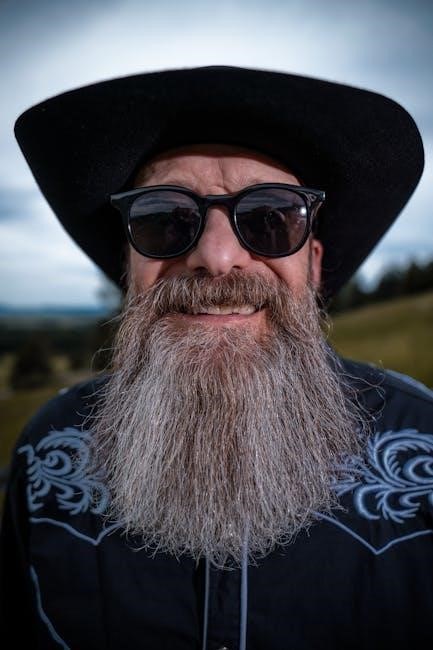
The Role of Traditional Men in Norse Mythology
Traditional men in Norse mythology embodied strength, loyalty, and honor, serving as warriors and protectors of their communities, upholding the values central to Viking culture and identity.
2.1. The Archetype of the Warrior in Norse Culture
The warrior archetype in Norse culture symbolizes strength, courage, and unwavering loyalty, exemplified by figures like Odin and Thor, who embody the ideals of honor and sacrifice central to Viking identity and the pursuit of glory in battle and the afterlife of Valhalla, inspiring modern interpretations of masculinity and resilience.
2.2. The Significance of Loyalty and Honor in Viking Society
Loyalty and honor were cornerstone values in Viking culture, dictating social conduct and warrior ethics. Betrayal was met with shame and ostracism, while unwavering loyalty earned respect and glory. These principles governed both personal relationships and communal bonds, reflecting the moral framework that defined Viking identity and their pursuit of a noble legacy, as celebrated in sagas and myths.
Ragnarok and Its Impact on Traditional Masculinity
Ragnarok embodies the ultimate test of strength and sacrifice, challenging traditional masculine roles while symbolizing transformation and the cyclical nature of power and identity.
3.1. The End of the World as a Symbol of Transformation
Ragnarok, the Norse apocalypse, symbolizes profound transformation, where destruction precedes renewal. It mirrors the cyclical nature of life, suggesting that endings pave the way for new beginnings, reflecting the inevitable evolution of traditional masculine ideals in a changing world.
3.2. The Role of Male Figures in the Events Leading to Ragnarok
In “Libro Ragnarok,” male figures embody traditional virtues like courage and duty. Odin leads with wisdom, while Thor wields strength to protect. Loki’s cunning and Fenrir’s rebellion symbolize chaos, highlighting the struggle between order and destruction. These roles underscore the book’s exploration of masculinity, duty, and sacrifice in the face of impending doom.
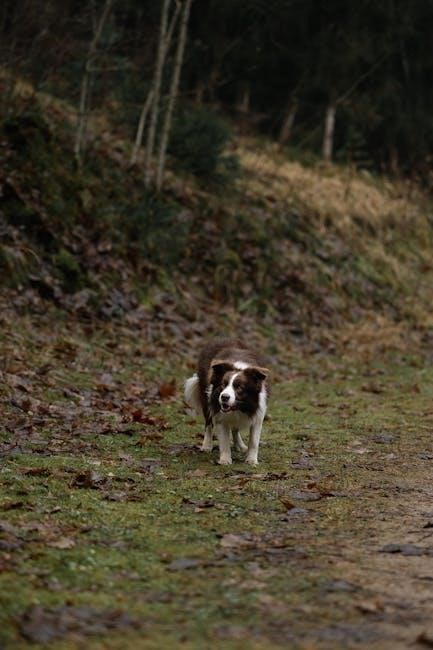
Cultural Relevance of “Hombres Tradicionales” Today
“Hombres Tradicionales” resonates in modern society by exploring traditional masculinity and its influence on contemporary culture. The book sparks conversations about gender roles, identity, and cultural preservation, making it a timeless piece for today’s audience seeking to understand these evolving concepts.
4.1. How Traditional Values Influence Modern Society
Traditional values from “Hombres Tradicionales” emphasize resilience, community, and respect for heritage, contrasting with today’s fast-paced, individualistic world. These principles foster a sense of responsibility and honor, influencing modern discussions on identity, ethics, and societal cohesion, making them relevant in shaping a balanced, value-driven contemporary culture.
4.2. The Book’s Contribution to Understanding Masculine Identity
“Hombres Tradicionales” offers a profound exploration of masculine identity, blending Norse mythological themes with contemporary societal expectations. By highlighting strength, sacrifice, and leadership, the book provides a framework for understanding traditional masculinity in a modern context, encouraging readers to embrace both resilience and vulnerability, fostering a balanced perspective on what it means to be a man today.
Key Themes and Symbols in “Libro Ragnarok”
Strength, sacrifice, and loyalty are central themes, while symbols like the wolf, representing chaos, and Yggdrasil, embodying resilience, enrich the narrative of transformation and destiny.
5.1. The Representation of Strength and Sacrifice
The book vividly portrays strength as a cornerstone of traditional masculinity, while sacrifice is depicted as a noble act of devotion to greater causes. Through the lens of Norse mythology, characters embody these virtues, illustrating their significance in shaping identity and destiny. The narrative underscores how these qualities, though challenging, are essential for personal and collective transformation.
5.2. The Symbolism of the Wolf and the Tree of Life (Yggdrasil)
The wolf symbolizes chaos and transformation, embodying the unpredictable forces of nature, while Yggdrasil, the Tree of Life, represents cosmic order and resilience. Together, they illustrate the duality of destruction and rebirth central to Ragnarok. The wolf’s presence challenges the characters, while Yggdrasil’s enduring roots signify hope and continuity amidst turmoil, reflecting the book’s exploration of traditional values and existential themes.
The Author’s Perspective on Traditional Men
The author portrays traditional men as embodying strength, resilience, and honor, drawing inspiration from Norse mythology to highlight their role in preserving cultural values and facing modern challenges.
6.1. The Author’s Vision of Masculinity in Modern Times
The author envisions modern masculinity as a blend of traditional values and contemporary adaptability, emphasizing strength, honor, and resilience. Drawing from Norse mythology, the vision highlights the importance of leadership and sacrifice, encouraging men to embrace their roles in preserving cultural heritage while navigating the complexities of today’s world.
6.2. The Influence of Norse Mythology on the Author’s Work
Norse mythology deeply shapes the author’s narrative, with figures like Odin and Thor embodying strength and sacrifice. The concept of Ragnarok inspires themes of transformation and the cyclical nature of time, influencing the book’s exploration of resilience and the enduring spirit of traditional values in a modern context.
The PDF Version of “Hombres Tradicionales”
The PDF version of “Hombres Tradicionales” offers a convenient digital format, making the book easily accessible to readers worldwide, ensuring its ideas reach a broader audience effortlessly.
7.1. Accessibility and Popularity of the Digital Format
The PDF version of “Hombres Tradicionales” enhances accessibility, allowing readers to engage with the content on various devices, including e-readers and smartphones. Its digital format ensures widespread reach, making it easier for audiences to access the book globally. The convenience of offline reading and sharable links has significantly boosted its popularity among modern readers seeking traditional wisdom in a contemporary format.
7.2. The Impact of the PDF on Contemporary Readers
The PDF format of “Hombres Tradicionales” has revolutionized access to its insights, appealing to tech-savvy readers. Its convenience aligns with modern reading habits, enabling easy sharing and storage. The digital version ensures the book’s traditional values resonate widely, offering a timeless perspective in a fast-paced, digitally driven world while maintaining the depth and authenticity of its original message.
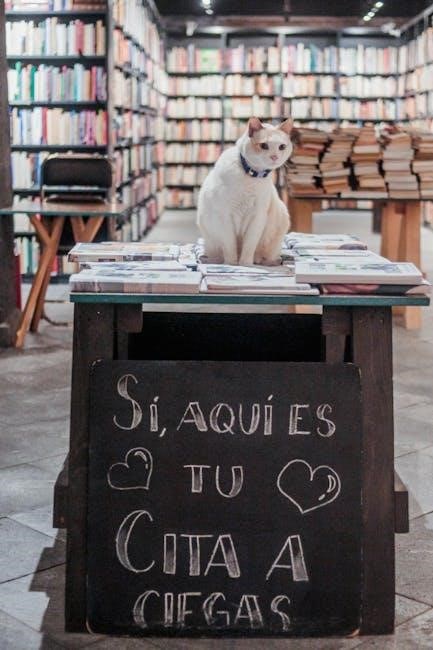
Analysis of Key Male Figures in the Book
“Hombres Tradicionales” explores seminal male figures like Odin and Thor, embodying leadership, wisdom, and strength. Their roles in Norse mythology illuminate traditional masculine ideals, resonating with contemporary readers seeking timeless values in a modern context.
8.1. The Role of Odin as a Symbol of Wisdom and Leadership
Odin, the All-Father, embodies wisdom and leadership in Norse mythology. His strategic foresight and decision-making inspire traditional masculine ideals. In “Hombres Tradicionales,” Odin’s guidance of the Aesir and his sacrifices for knowledge highlight his role as a protector and visionary, symbolizing the balance between authority and wisdom in shaping destiny.
8.2. The Significance of Thor as a Protector and Warrior
Thor, the mighty god of thunder, stands as a protector and warrior, defending Asgard and humanity from chaos. His unwavering courage and strength in battle exemplify the traditional masculine virtues of protection and valor. In “Hombres Tradicionales,” Thor’s role during Ragnarok underscores his loyalty and sacrifice, making him a timeless symbol of heroism and the guardian archetype.
The Concept of Loyalty and Honor in the Book
Loyalty and honor are cornerstone virtues, shaping the characters’ moral compass and actions. These principles reflect the traditional masculine ideals of duty, integrity, and steadfast commitment.
9.1. How These Values Shape the Characters’ Actions
Loyalty and honor profoundly influence the characters’ decisions, driving them to uphold their principles even in adversity. These virtues inspire selfless acts, prioritizing the greater good and reinforcing traditional masculine ideals of duty and integrity, which guide their actions and shape their identities.
9.2. The Relevance of These Values in Contemporary Society
Loyalty and honor remain vital in modern times, fostering trust and strong relationships. These values inspire integrity, accountability, and resilience, which are essential for leadership and community building. In a fast-paced, often fragmented world, they provide a foundation of stability, encouraging individuals to uphold their commitments and act with moral responsibility.
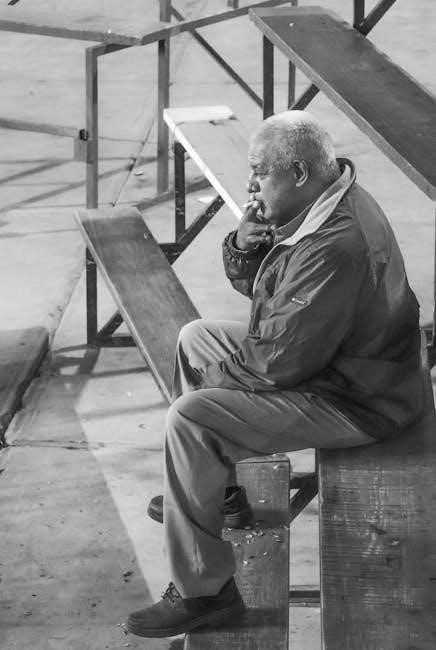
The Book’s Contribution to Cultural Preservation
The book preserves cultural heritage by exploring Norse mythology and traditional values, ensuring their relevance and transmission to future generations through engaging storytelling and analysis.
10.1. Preserving Norse Mythology for Future Generations
By weaving Norse mythology into its narrative, the book ensures the survival of these timeless stories, making them accessible to modern readers while maintaining their cultural essence and significance.
10.2. The Book’s Role in Promoting Traditional Values
The book revives traditional values by drawing from Norse mythology, emphasizing honor, loyalty, and resilience. Through its narrative, it encourages readers to embrace timeless principles, offering a modern perspective on ancient virtues. The PDF format enhances accessibility, ensuring these values reach a broader audience, fostering a renewed appreciation for tradition in contemporary society.
Modern Interpretations of “Hombres Tradicionales”
Contemporary readers interpret “Hombres Tradicionales” as a reflection of modern masculinity, blending ancient myths with current societal challenges, offering insights into personal growth and identity formation.
11.1. How Readers Today Relate to the Book’s Themes
Modern readers connect deeply with the book’s exploration of identity, resilience, and cultural heritage. The themes of loyalty, honor, and transformation resonate in today’s discussions on masculinity and societal expectations, offering readers a bridge between ancient myths and contemporary life.
11.2. The Book’s Influence on Modern Literature and Thought
By blending traditional values with contemporary narratives, “Hombres Tradicionales” inspires modern authors to explore themes of identity and cultural heritage. Its unique perspective on masculinity challenges societal norms, fostering deeper discussions in literature and philosophy, while its mythological insights offer fresh lenses for understanding human resilience and transformation in today’s world.
‘Hombres Tradicionales’ explores traditional masculinity via Ragnarok, highlighting honor and transformation. It challenges modern views, prompting reflection on these values’ relevance today, ultimately impacting masculine identity understanding.
12.1. Summary of the Book’s Key Messages
“Hombres Tradicionales” explores the essence of traditional masculinity through Norse mythology, emphasizing honor, loyalty, and sacrifice. Ragnarok symbolizes transformation, urging readers to reflect on enduring values. The book bridges ancient myths with modern identity, offering insights into cultural preservation and the timeless relevance of these principles in shaping individual and societal character.
12.2. Final Thoughts on the Relevance of “Hombres Tradicionales” in the Modern World
“Hombres Tradicionales” offers timeless lessons on honor, loyalty, and resilience, resonating deeply in today’s fast-evolving world. By bridging ancient Norse mythology with modern masculinity, the book encourages reflection on identity and values. Its themes of sacrifice and courage inspire readers to embrace tradition while navigating contemporary challenges, ensuring its relevance for future generations.
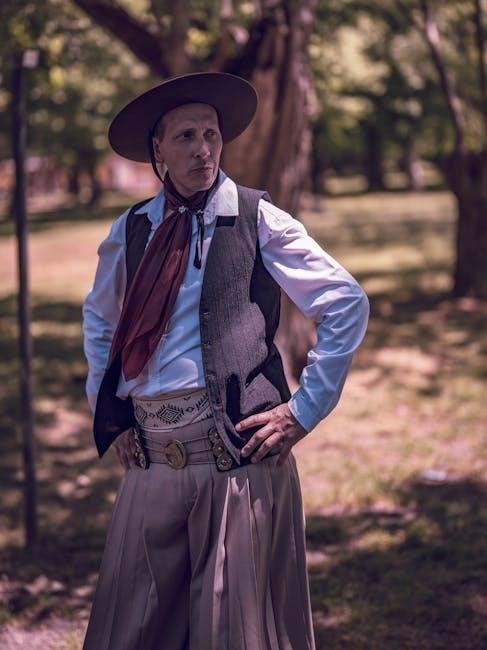
No Responses